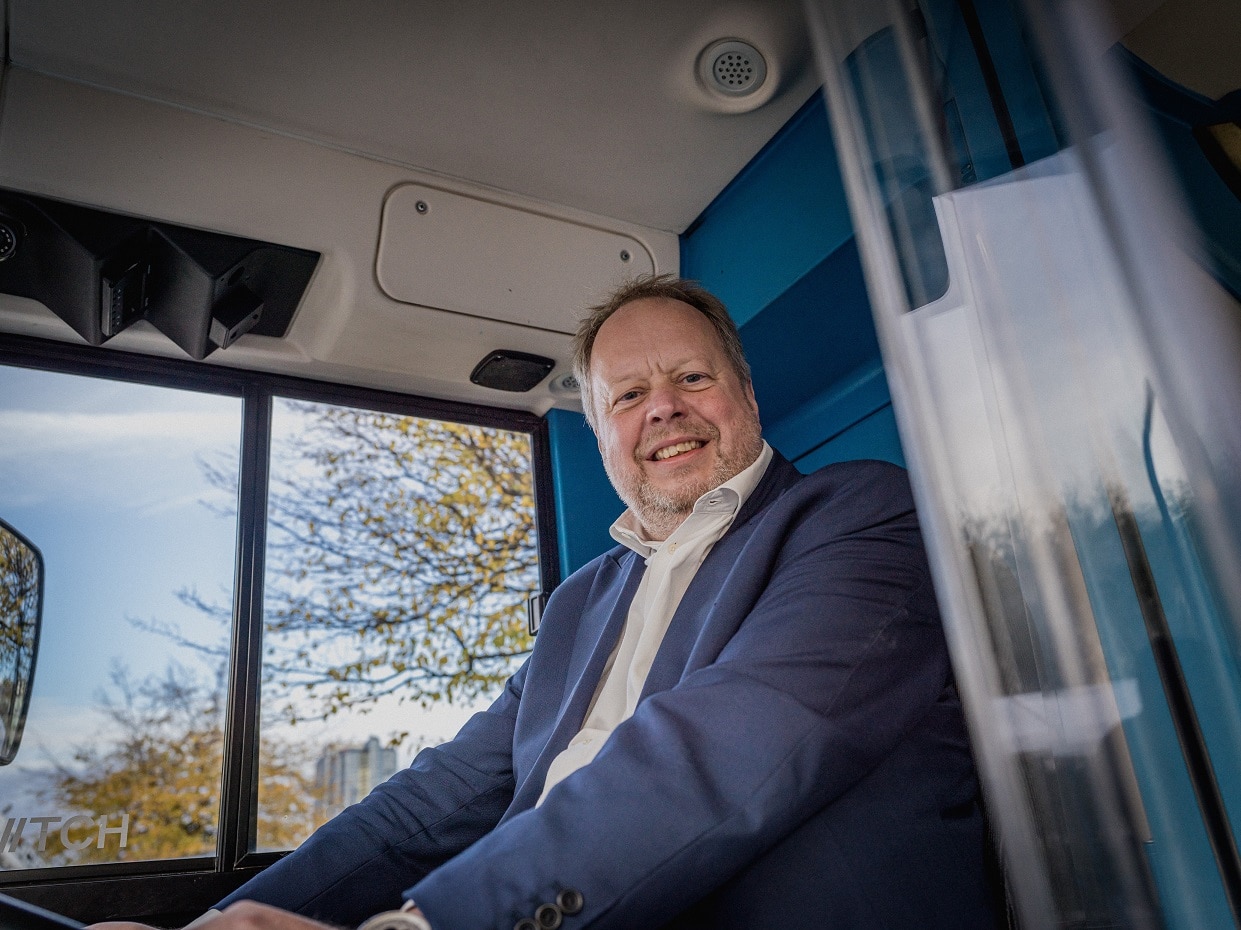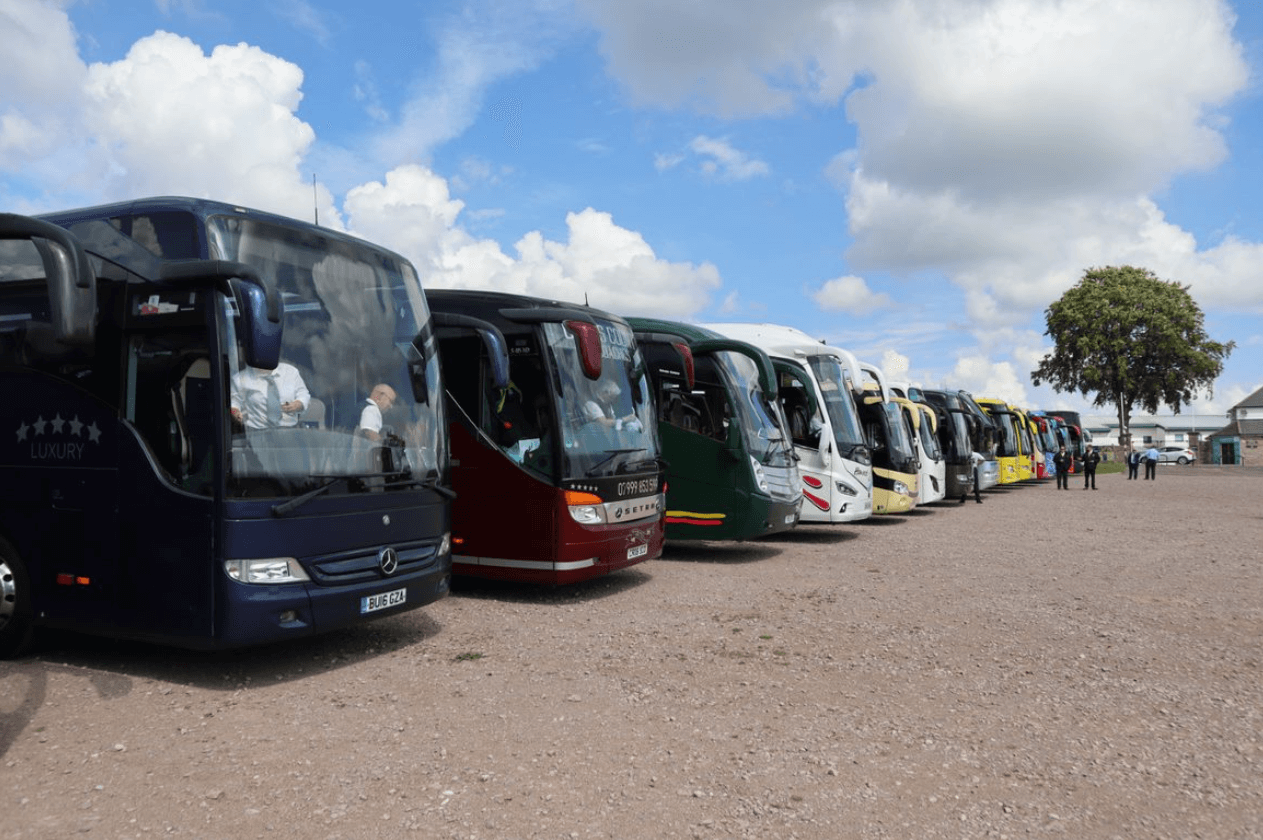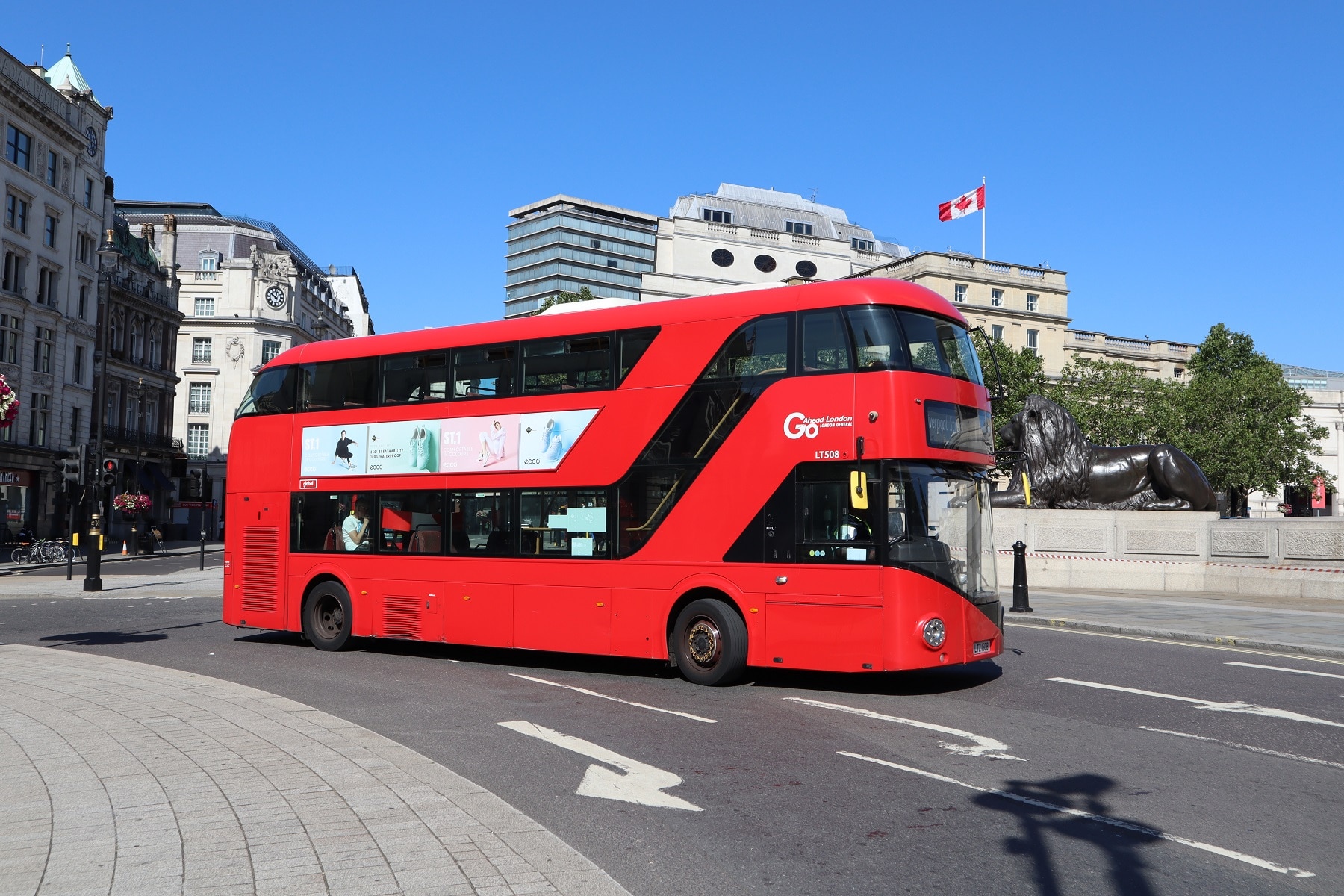Strategy, synergy and stabilisation are key for Switch Mobility in 2022 as it continues under the leadership of CEO and Executive Vice Chairman Dr Andy Palmer. Switch combined bus manufacturer Optare with the zero-emission commercial vehicle arm of its Indian parent Ashok Leyland and it is the battery-electric segment where the business is entirely focused now that the last Optare-badged diesel buses have been completed.
An influential automotive industry leader, Andy’s career in the sector is well documented. It includes time spent in senior roles with Nissan and as head of Aston Martin. He also brings to Switch strong knowledge of the commercial vehicle market. Andy has been a non-executive Director of Ashok Leyland since 2017, and while at Nissan one of his responsibilities was creation of the e-NV200 battery-electric van.
Another project he led was development of the Leaf battery-electric car. After leaving Nissan, Andy believed that his personal journey in zero-emission was incomplete, and post-Aston Martin, the opportunity at Switch – which is also active in the van space – presented itself. Andy was adamant that he would take it on only if the business was built around one primary consideration: It must centre on net zero carbon.
Developing Switch, he says, is “only interesting if we [can] move the zero-emission story on, raise the bar and demonstrate to the world that net zero is something that you don’t have to wait until 2035 for. Instead, you can achieve it today.”
Net zero carbon at Switch Mobility heart under Andy Palmer
Members of the Hinduja family, owners of Ashok Leyland and Optare, were convinced. Switch Mobility was formed in late 2020. The final Optare-branded diesel buses were being completed at the Sherburn-in-Elmet factory a year later, and with that, Andy claims that Switch has already realised its net zero carbon ambition.
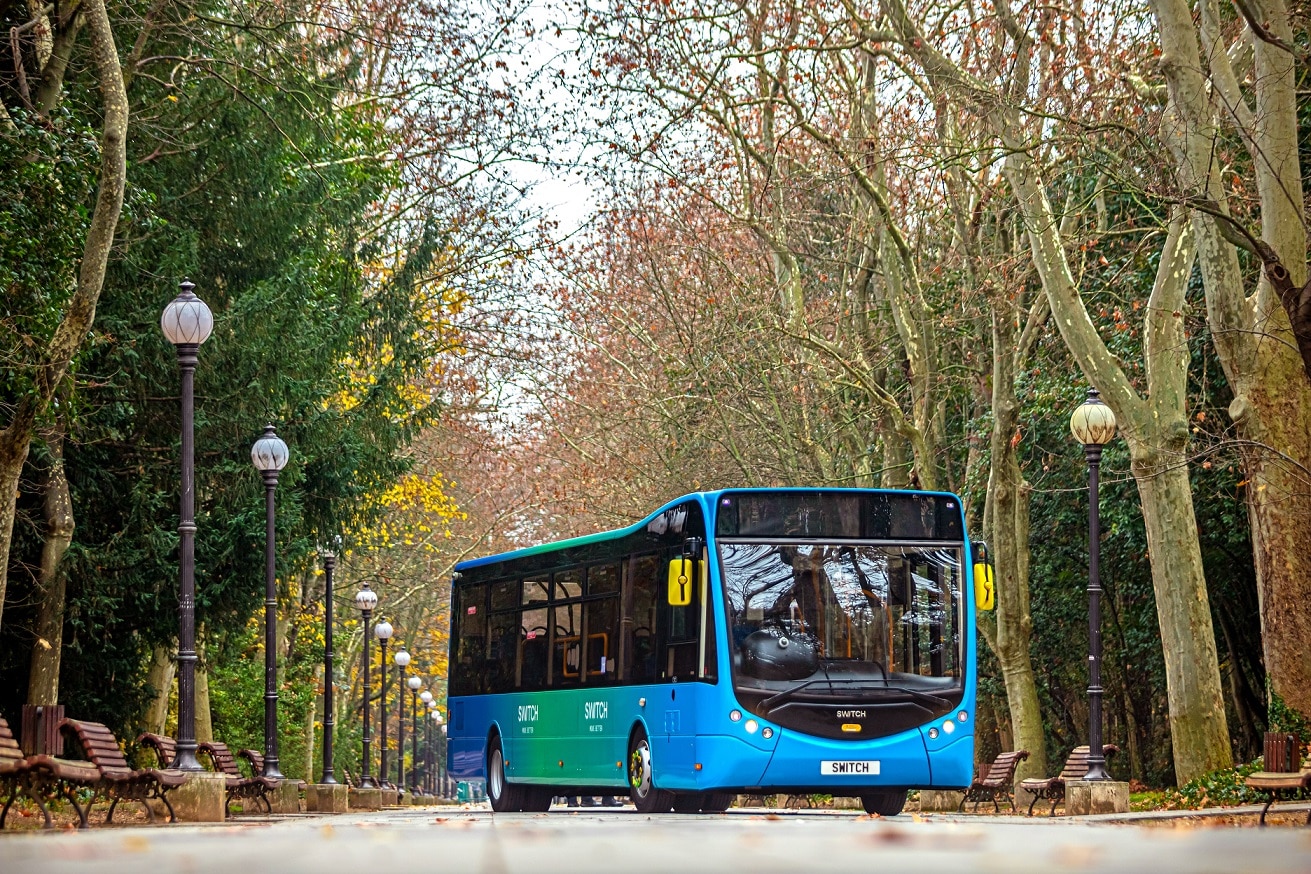
That achievement involves building vehicles in a manner that is as close to net zero as possible. It includes the sourcing of green energy and consideration of end-of-life implications.
Switch takes an offset for carbon that is created during manufacturing, including that generated by suppliers. He accepts that those businesses “are not there yet,” but for new models that are under development, Switch will work only with suppliers that have a roadmap towards net zero of their own.
Offsetting carbon generated during production incurs a cost for Switch. “But it makes management decisions around going with a sustainable solution much easier,” Andy says. If the customer does not yet value net zero, Switch is left at a competitive disadvantage. Because of that, it is imperative that local and national governments better understand the difference between zero-emission and net zero and strive for the latter, he adds.
“Net zero carbon is a lot different to zero tailpipe emissions. We have set the bar higher because it is the right thing to do. We take the cost that comes with it because that is also the right thing to do.”
Batteries fitted to Switch’s buses and vans are a prominent part of its net zero carbon work. After a first life within those vehicles, the OEM will transfer them to a storage application, potentially for renewable energy generation. “The third life, which we believe that we also have a responsibility for, is putting the battery through a shredder, returning it to a ‘black mass’ and then using that in new batteries.”
TCO forms big part of Switch Mobility focus
To counter the present added expense of net zero, another focus for Switch is minimising total cost of ownership (TCO). Optare buses have long held a strong reputation for energy efficiency, thanks largely to their lightweight monocoque construction. Andy sees no reason to change that approach, and the core models that formed part of Optare’s EV range – Metrocity EV, Metrodecker EV and Solo EV – will each continue in the UK market.
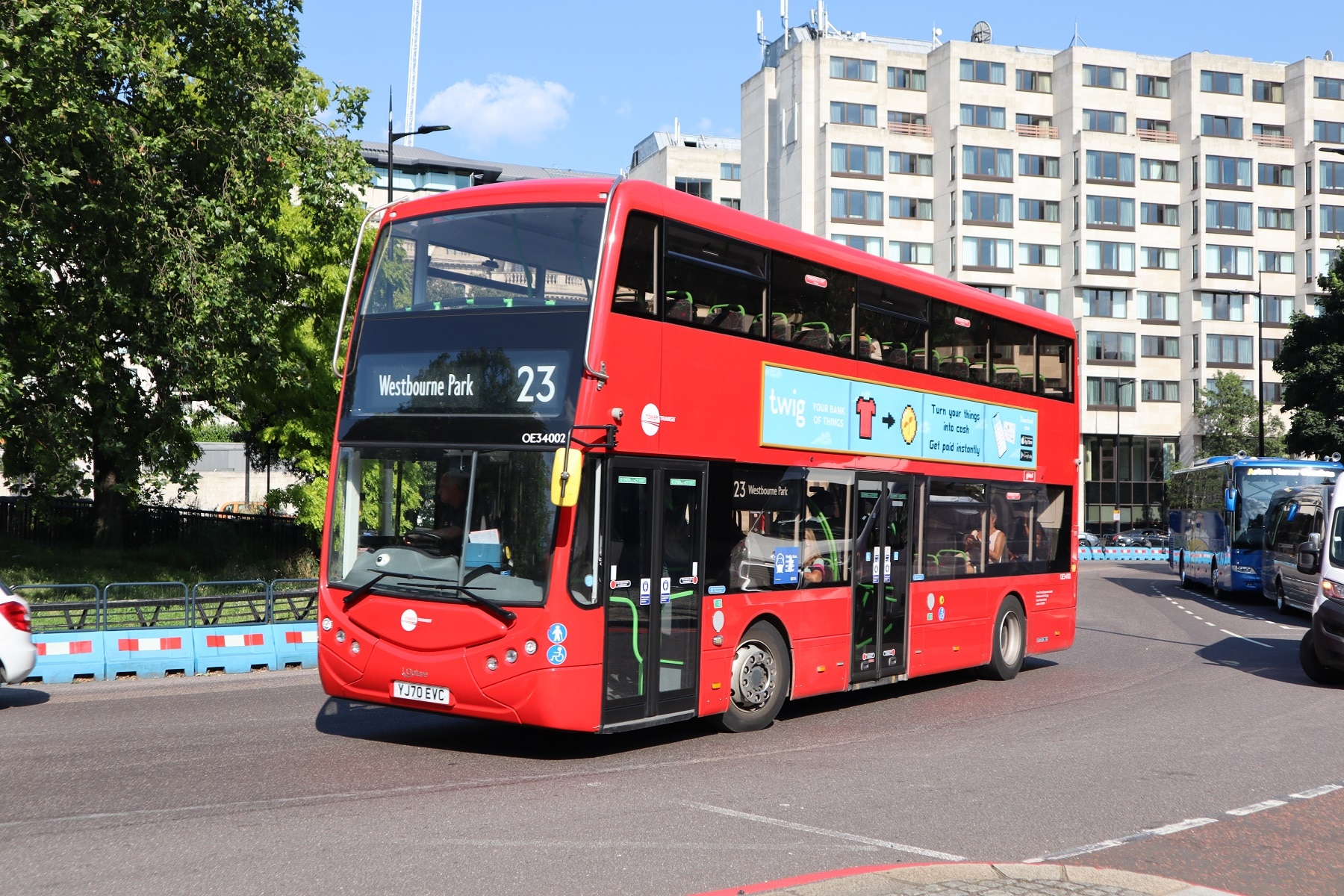
Associated with the energy efficiency of vehicles is work on drag reduction. Also relevant is battery chemistry. Switch uses lithium nickel manganese cobalt oxide, or NMC.
It delivers what Andy describes as “a very high energy density” compared to some other chemistries, allowing battery mass to be minimised.
Suitable technology is required to control those batteries. That is where the synergy aspect of Switch’s plans starts to come in. “It is about data science,” he explains. The OEM’s footprint in India can be leveraged here.
“All our vehicles are connected. We harvest around 2TB of data each day from our existing fleet around the world. We use that in its simplest form to minimise the size of the battery.” On an urban bus, Switch’s priority is to optimise range, not necessarily maximise it. The former means that the vehicle carries no more weight than is necessary to complete its mission.
Andy’s belief is that battery-electric is the zero-emission technology best-suited to bus applications. The hydrogen fuel cell-electric Metrodecker H2 that was mooted under Optare will thus not progress. For scenarios that require extended ranges, Switch will rely on a modular arrangement that allows the fitment of more battery packs, and opportunity charging has not been ruled out. More radically, swapping batteries during the operating day could also figure.
The latter technology is currently under investigation in India. Andy is reserved on whether battery swap could become a viable means to extend range under UK conditions, and complications around the logistics of doing so may count against it. “But nevertheless, it is in our portfolio.”
Leveraging synergies between Europe and India will bring savings
The relationship between Switch’s affairs in Europe and those in India will form a significant part of how the business develops. The next generation of bus that is currently being worked on will have a European version and an Indian version. While each will be customised to suit local requirements, there will be extensive commonality.
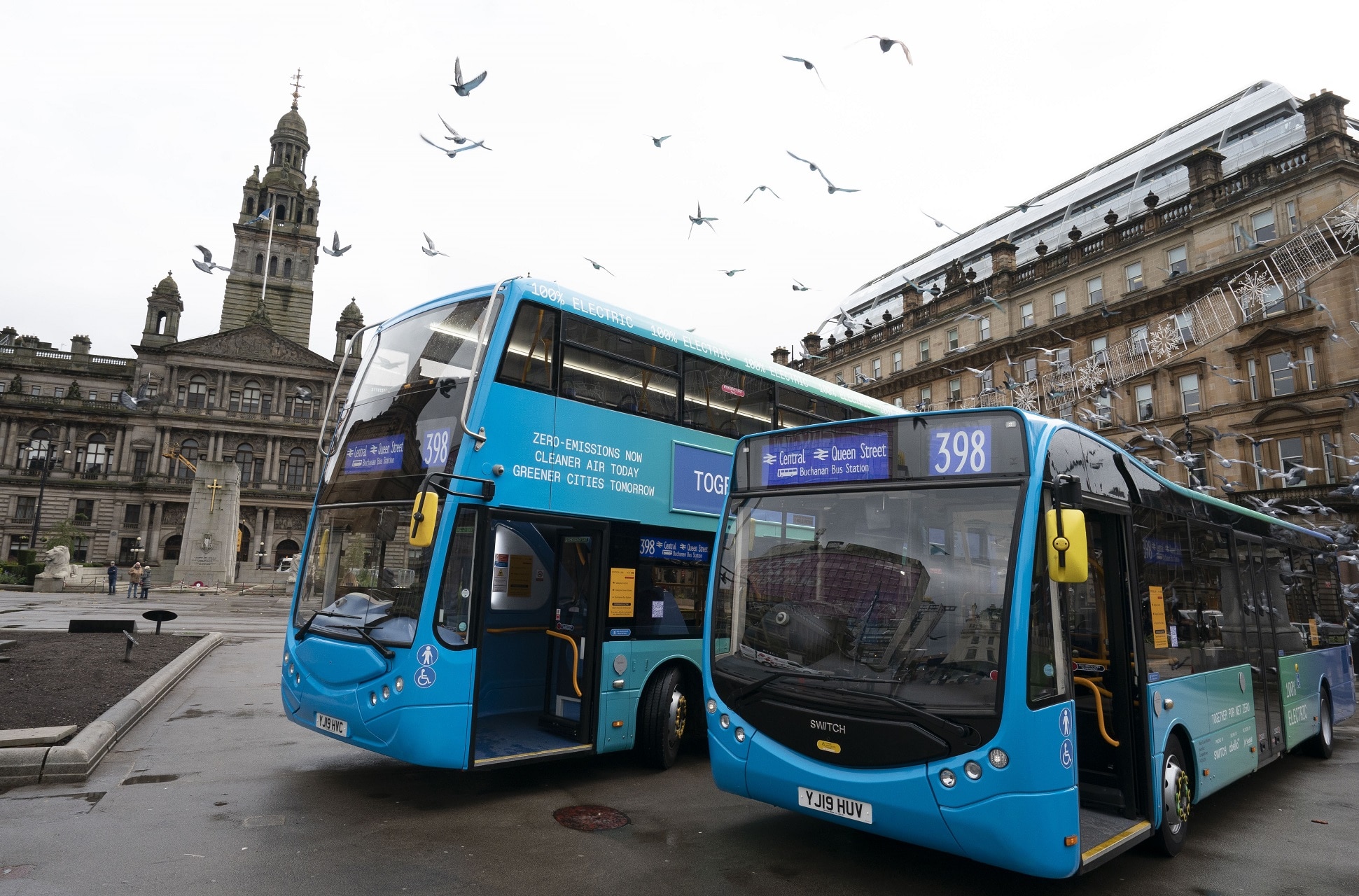
Such an approach will deliver “massive” cost reductions, Andy says. “That is good news. It helps to make Switch a profitable business, but it also helps with reinvestment.”
Growth into European left-hand drive markets will further aid economies of scale; Switch recently announced that it will invest €100m in a manufacturing and technology centre in Spain to serve those nations. That facility will also open the door to South America, and Andy sees opportunities in the Far East outside China.
Despite that work, Switch remains committed to manufacturing in the UK. “There is clearly an important role for Yorkshire to play,” he continues. “As we go forward and we source vans, Sherburn will not be big enough, so we will need to look for an adjacent or close-by facility. Nevertheless, that underpins our resolve to find solutions in Yorkshire.”
A further area that may deliver synergies is the ‘as-a-service’ approach. Switch recently won a contract for 300 buses in Bengaluru where the local transport authority effectively pays per mile of use. It handles ticketing and Switch deals with everything else, including operating the vehicles.
“We like that because we can guarantee charging with sustainable electricity,” says Andy. “I wanted to prove the [as-a-service] model, so we have only rolled it out in India so far. But we have other models that we think could be interesting.” If as-a-service is offered by Switch in the UK, there is potential to tailor it to the market here, including a standalone battery-as-a-service approach.
Recognising the past, looking to the future
Although Switch Mobility is looking towards the future, Andy does not paper over the history and achievements of Optare. It began as a bodybuilder and later graduated to complete vehicles. Its break came in 1997 with the Solo. Andy is mindful of that model’s popularity with retail customers and Switch hopes to continue that with the Solo EV.
“We debated whether there is a big enough difference between a small Metrocity and a Solo. Ultimately, we concluded that there is, and Solo will continue. A lot of that comes down to retail buyers,” he explains. “The retail segment is still an important market for us.”
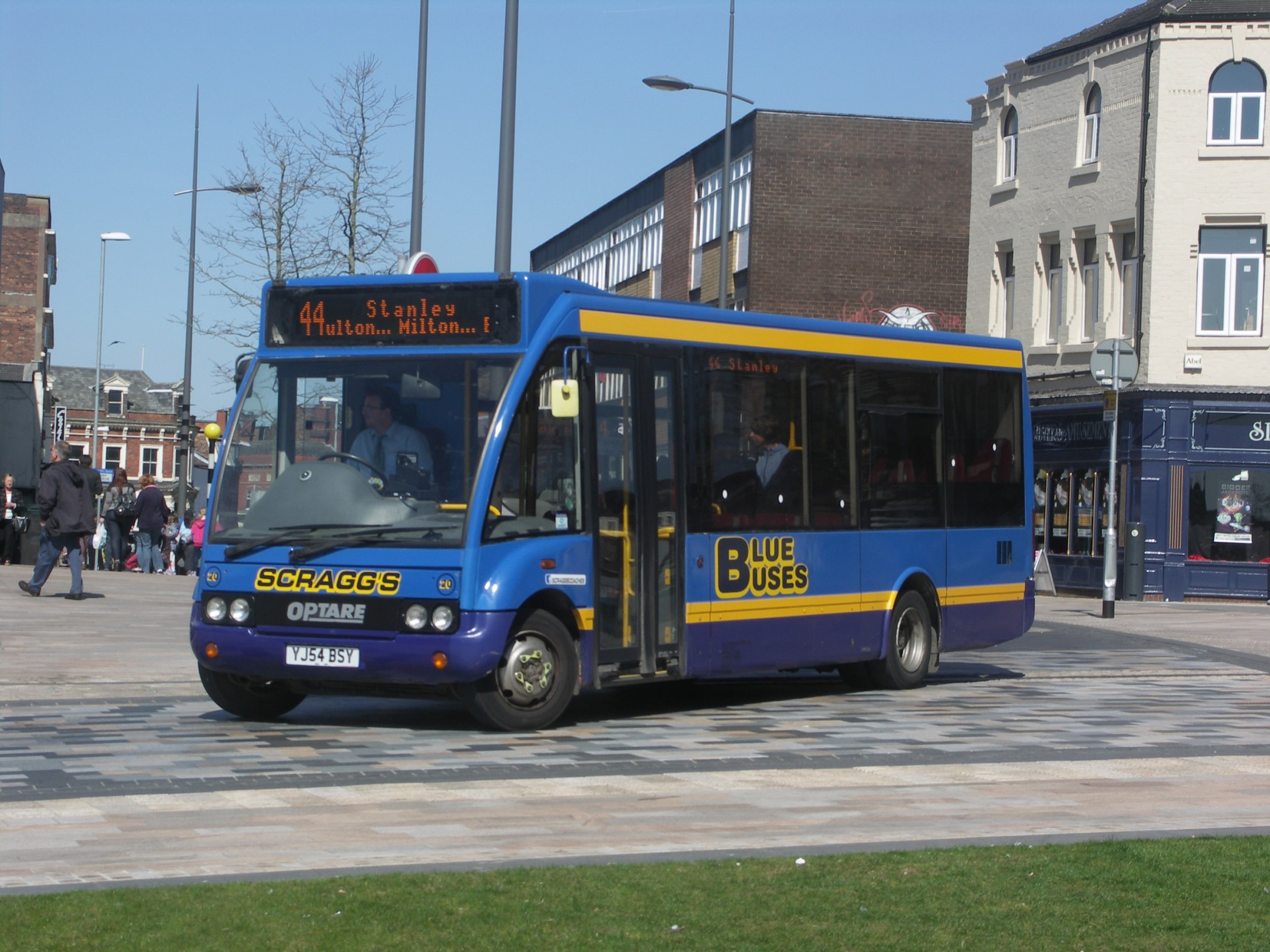
While Optare’s legacy is something to celebrate, the Switch regime quickly recognised that a handful of elements required improvement.
Adherence to vehicle delivery schedules “was not great,” Andy acknowledges. “But we have done a lot to solve that, particularly around properly funding the company.
“It means that we can do everything right in terms of finding the correct suppliers, bringing in materials on time and running a company that delivers when it says it will.”
As an example, in July 2021 Switch and Dana reached a strategic agreement for Dana to both take a small shareholding in Switch and become a preferred supplier of drivetrain components. “Dana bought into the business plan,” says Andy. “That is a whole different place from where the company was.”





















